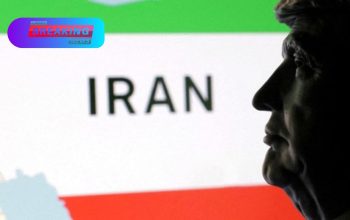Netanyahu Slams Macron’s Move to Recognize Palestine
The announcement of Emmanuel Macron’s plan to recognize Palestine has sparked strong criticism from Israeli Prime Minister Benjamin Netanyahu. According to Netanyahu, this political gesture from France risks fueling antisemitism and undermining efforts toward peace in the Middle East. The statement quickly escalated into a heated diplomatic issue, as Israel sees this move not as a path to dialogue, but as an incentive for extremism.
Macron’s Recognition Plan and Its Timing Netanyahu
French President Emmanuel Macron has been under growing pressure from domestic groups and international organizations to formally recognize Palestine as a sovereign state. Supporters argue that such recognition would be a step toward justice for Palestinians who have long lived under occupation. Critics, however, see the move as premature and politically motivated, especially given the tense environment in the Middle East.
Netanyahu believes the recognition sends a dangerous message by rewarding unilateral moves instead of fostering direct negotiations. He has argued that without a peace agreement between Israelis and Palestinians, recognition risks deepening the divide rather than bridging it.
Israel’s Reaction: Concerns Over Antisemitism
In his remarks, Netanyahu linked the recognition plan directly to rising antisemitism in Europe. He claimed that when world leaders legitimize steps that sidestep peace talks, they indirectly embolden anti-Jewish sentiment. According to him, Macron’s decision may not only harm Israeli security but also worsen tensions between Jewish communities and wider European societies.
Israel has long maintained that international recognition of Palestine without mutual agreements weakens prospects for true peace. By viewing the move as biased toward one side, Netanyahu fears it could delegitimize Israel’s security concerns while amplifying hostility on the global stage.
European Division on Palestine
France’s plan highlights a broader split within Europe. While countries like Spain, Sweden, and Ireland have expressed support for Palestine, others remain cautious, citing the risks of destabilizing relations with Israel. Macron’s move could place France at the forefront of European diplomacy in the Middle East, but also at odds with allies who prioritize balance.
This division reflects a larger debate: should global powers push forward symbolic recognition as a gesture of solidarity with Palestinians, or should they insist on direct negotiations first? Macron seems to favor the former, while Netanyahu insists only the latter can guarantee stability.
Impact on Middle East Diplomacy
The controversy adds another layer of complexity to already fragile relations in the Middle East. For Palestinians, French recognition would represent a historic milestone in their long pursuit of international legitimacy. For Israel, however, it feels like a diplomatic betrayal that ignores security realities.
If France proceeds, it may embolden other nations to follow suit, creating a domino effect across Europe. Such recognition could shift the balance of international opinion, further isolating Israel diplomatically. On the other hand, critics argue that symbolic moves alone—without addressing practical issues like borders, refugees, and security—will not bring about peace.
Conclusion: A Diplomatic Crossroads
The clash between Netanyahu and Macron reflects a deeper struggle over how peace in the Middle East should be pursued. While Macron frames recognition as a moral obligation, Netanyahu warns it could deepen hostility and antisemitism.
The world now watches closely: will France’s bold step inspire a new wave of recognition for Palestine, or will it exacerbate divisions both in Europe and in the Middle East? What is clear is that the debate over recognition has become more than symbolic—it represents the crossroads of diplomacy, identity, and global security.



